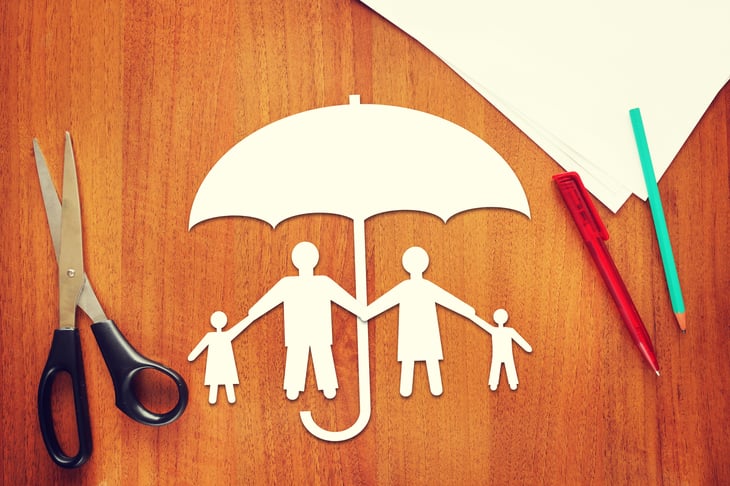
Editor's Note: This story comes from Wealthramp.
What if I told you the world of providing financial advice has greatly evolved in the last decade? Do you know how it has changed and whether you’re still taking an “old-school” approach to planning your finances?
It used to be that financial planning was an “add-on” service for wealthier clients with enough assets to be professionally managed. The emphasis was on the return of the assets and not much else. Meanwhile, the average person, especially one starting out in a career, had little to no opportunity to receive any planning advice.
However, some of today’s financial advisers have taken a new approach — they fully focus on you and your goals, instead of just looking at your investments.
Called the fee-for-service model or fee-only, this new model allows financial advisers to weigh in on anyone’s financial life at any income level. Now someone in their early 30s (which I believe is the most critical time in your financial planning life), who may not yet have accumulated many assets, can receive direction, and start on the best path forward.
When you engage with a fee-for-service financial adviser early, you can avoid costly mistakes and understand your options. Here are a few of the mistakes working with an adviser in your 30s can help you avoid.
Mistake #1: Focusing too much on budgeting instead of cash-flow planning

Stop focusing so much on budgeting. Yes, really. Instead, focus on cash-flow planning.
Budgeting is important, but it implies a scarcity mindset, while cash flow planning looks at the bigger picture — both short-term and long-term goals. Reframing the process of spending as allocating toward your goals instead of cutting costs helps improve your chances of success.
The result becomes the foundation of your financial plan and helps you decide where to make spending changes.
Understanding and detailing your cash flow allows you to make sure you are allocating enough for your future goals, like retirement, traveling, education, or purchasing a second home.
Mistake #2: Not saving for your kids’ college

Many professionals at the midstage of their careers still have young children and haven’t yet thought about their college education. Let me be the first to tell you — it’s a major mistake to put off saving for later.
If you haven’t put away funds yet, start now. The sooner you start saving for your children’s higher education, the better.
If you can, we recommend funding a 529 plan with up to $32,000 per year ($16,000 for each parent). This plan type will still qualify you for an annual gift tax exclusion. If you want to get a big head start on your child’s education you can also look to superfund, or contribute up to five years all at once.
Think your children will attend private school? Good news — your 529 fund can help pay for K–12 expenses too.
Mistake #3: Putting off buying life insurance

You’re relatively young now, so it may be hard to think about the end of your life. But here’s the hard truth: Anything can happen at any time.
That’s why buying life insurance is critical to keep your family’s lifestyle and goals on track.
For most people, a term life policy offers the ability to cost effectively replace your salary during your prime earning years.
Remember, this is not just income replacement. It’s also intended to cover major liabilities, like your mortgage, student loans, and college costs.
Mistake #4: Not saving after-tax funds for retirement

Maxing out your 401(k) or employer retirement plan should be your No. 1 retirement priority. This is money that’s saved pre-tax, meaning you don’t have to pay taxes on it until you withdraw the funds after age 59 ½.
However, paying taxes on those funds when you eventually withdraw them means that $1 million in your account isn’t really $1 million.
That’s why it’s also important to start saving money after tax. Open a taxable brokerage account to put in after-tax funds. This is especially critical if you plan on retiring before age 59 ½.
Mistake #5: Not having a ‘sunny day’ fund

You have a rainy-day fund in place (also known as your emergency fund). But do you have a fund for your dreams and goals? I like to call this your “sunny day fund.”
Once you have an emergency fund with enough to cover three to six months of expenses, and you’ve maxed out your retirement fund, you can invest for other things.
For example, you may want to buy a vacation home one day, or a boat, or take time off of work to travel. Don’t forget to put money aside to invest in life’s opportunities.
Mistake #6: Forgetting about tax planning when making financial decisions

When making financial decisions, aim to reduce the amount of taxes you pay this year, and try to reduce the amount of taxes you pay over your lifetime.
While we don’t want taxes to drive our decisions, a strong financial planner should be mindful of how tactical maneuvers can lower your taxes now and in the future.
Roth conversions, tax loss harvesting, tax location, and tax-free income saving are just some of the tactics that should be considered as part of your plan.
Above all, remember this …

You now have the opportunity to access planning for you and your family that wasn’t available 20 to 30 years ago.
We believe your 30s are the most critical time in your life for setting yourself up for financial success. The right fee-for-service financial planner can help you do this.





Add a Comment
Our Policy: We welcome relevant and respectful comments in order to foster healthy and informative discussions. All other comments may be removed. Comments with links are automatically held for moderation.